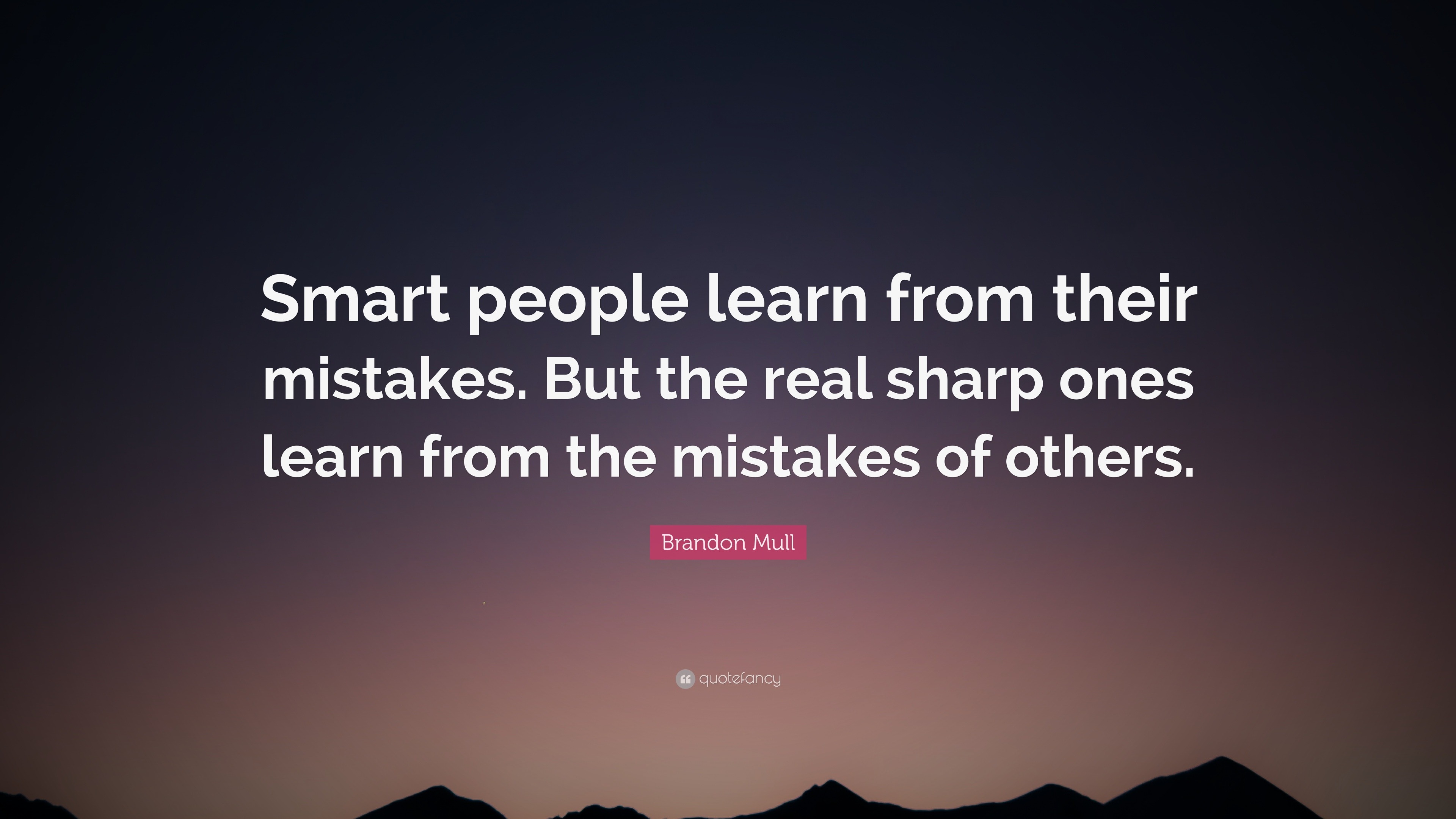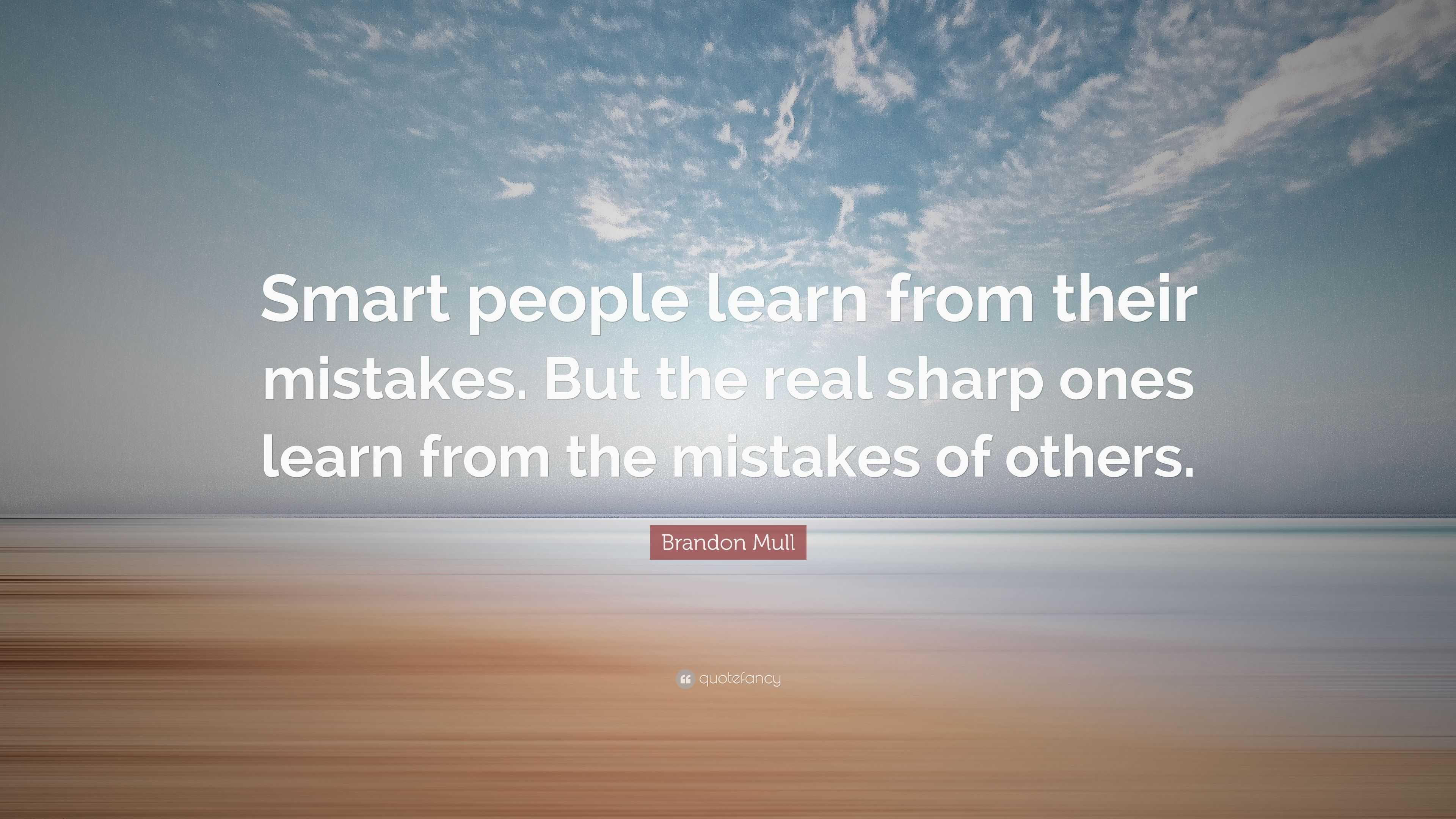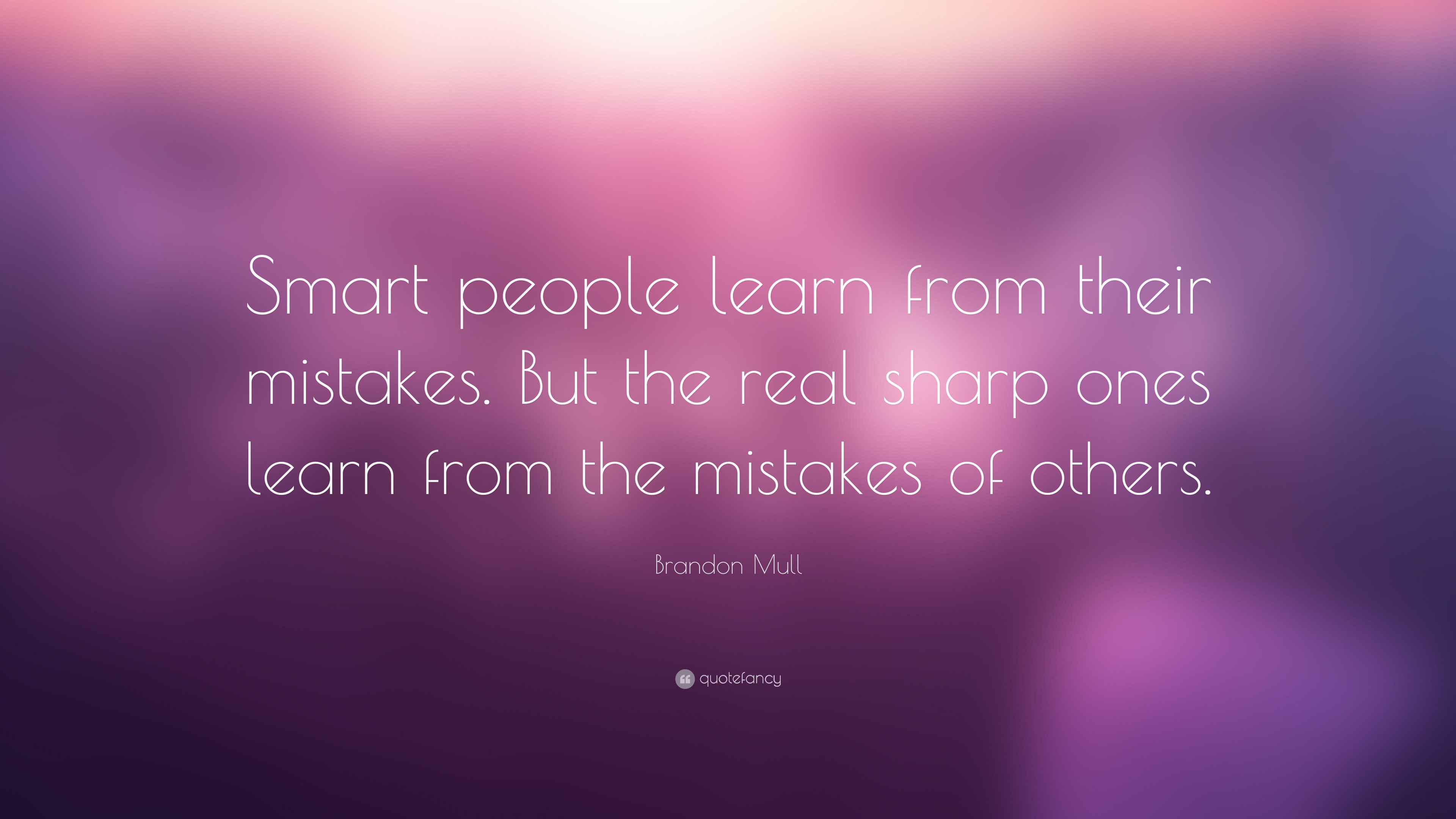The Unspoken Advantage: How Smart People Learn From Others’ Mistakes
The path to success is rarely a straight line. It’s a journey often punctuated by detours, roadblocks, and the occasional faceplant. While some believe the best lessons are learned through personal experience, a more efficient and arguably wiser approach exists: learning from the mistakes of others. This article explores the compelling reasons why smart individuals prioritize this valuable practice, providing insights into its benefits and practical application.
Why Learning From Others’ Mistakes is a Cornerstone of Success
The ability to analyze and internalize the failures of others is a powerful tool. It allows individuals to:
- Accelerate Learning: Instead of enduring the time-consuming process of making mistakes yourself, you can leapfrog to a higher level of understanding by studying the experiences of others.
- Minimize Risk: By understanding the pitfalls others have encountered, you can proactively avoid them, reducing the likelihood of costly errors and setbacks.
- Gain a Broader Perspective: Exposure to a diverse range of mistakes provides a richer understanding of potential challenges and unexpected consequences, leading to more informed decision-making.
- Improve Problem-Solving Skills: Analyzing the root causes of others’ failures hones critical thinking and problem-solving abilities, making you better equipped to navigate complex situations.
- Boost Resilience: Witnessing how others have overcome adversity, even through their mistakes, can build resilience and a greater capacity to bounce back from your own setbacks.
Practical Strategies for Learning From the Experiences of Others
Simply knowing that you should learn from others isn’t enough. Here’s how to effectively implement this strategy:
- Read Case Studies: Dive into detailed analyses of failures, successes, and the lessons learned. Business case studies, historical accounts, and even fictional narratives can offer valuable insights.
- Seek Out Mentors and Advisors: Connect with experienced individuals who can share their knowledge and provide guidance based on their past experiences. Ask direct questions about their biggest mistakes and what they learned from them.
- Listen Actively and Observe: Pay close attention to the experiences of colleagues, peers, and even competitors. Practice active listening, focusing not just on what is said but also on the underlying context and emotions.
- Debrief and Analyze Failures: When a project or endeavor doesn’t go as planned, don’t sweep it under the rug. Instead, conduct a thorough post-mortem, identifying the causes of failure and formulating strategies to prevent similar situations in the future.
- Embrace Feedback: Solicit and welcome constructive criticism. Feedback, even when difficult to hear, provides valuable insights into areas for improvement and potential pitfalls.
- Study Historical Context: Understand the mistakes of the past. Historical accounts, biographies, and studies of societal trends can provide valuable lessons about decision-making and the consequences of actions.
Cultivating a Culture of Learning
Organizations that foster a culture of learning are more likely to thrive. This involves:
- Open Communication: Creating an environment where sharing mistakes and lessons learned is encouraged, not punished.
- Documentation and Knowledge Sharing: Implementing systems for documenting project outcomes, both successes and failures, for future reference.
- Training and Development: Providing opportunities for employees to learn from external experts and industry best practices.
- Celebrating Learning: Recognizing and rewarding individuals and teams that demonstrate a commitment to learning from mistakes and continuous improvement.
The Power of Perspective: Avoiding the “Not Invented Here” Syndrome
One of the biggest obstacles to learning from others is the “Not Invented Here” syndrome. This bias leads individuals and organizations to dismiss external ideas and experiences in favor of reinventing the wheel. Overcoming this requires a conscious effort to:
- Cultivate Humility: Recognize that you don’t have all the answers and that others may have valuable insights to offer.
- Embrace Open-Mindedness: Be willing to consider alternative perspectives and challenge your own assumptions.
- Promote Collaboration: Foster a collaborative environment where knowledge sharing is encouraged across departments and organizations.
- Focus on Results: Prioritize the outcome over the source of the information. If a solution works, regardless of its origin, embrace it.
Conclusion: Embrace the Wisdom of Others
Learning from the mistakes of others is not just a shortcut to success; it’s a fundamental principle of intelligent decision-making and personal growth. By actively seeking out and analyzing the experiences of others, you can accelerate your learning, minimize your risks, and cultivate a more resilient and adaptable mindset. Embrace this powerful strategy, and you’ll be well on your way to achieving your goals with greater efficiency and effectiveness.
Frequently Asked Questions (FAQs)
1. How do I find reliable sources of information about others’ mistakes?
Look for reputable case studies, industry reports, academic journals, biographies, and interviews with experienced professionals. Online platforms like LinkedIn, industry forums, and professional organizations can also be valuable resources.
2. How can I overcome the fear of admitting my own mistakes?
Focus on the learning opportunity. Frame mistakes as opportunities for growth and development. Create a culture of psychological safety where admitting mistakes is seen as a strength, not a weakness.
3. How do I differentiate between helpful and unhelpful advice?
Evaluate the source’s credibility, experience, and track record. Consider the context and relevance of the advice to your situation. Trust your intuition, and don’t be afraid to seek a second opinion if you’re unsure.
4. What if I don’t have access to mentors or experienced individuals?
Utilize online resources, read books and articles, and attend industry conferences or webinars. Connect with professionals through online platforms like LinkedIn. You can also learn from the experiences of historical figures and successful individuals documented in biographies and other historical records.
5. How can I implement this principle in my daily life?
Make a conscious effort to reflect on your own experiences and those of others. Ask yourself, “What could I learn from this situation?” Actively seek feedback, read case studies, and engage in conversations with people who have different perspectives.




